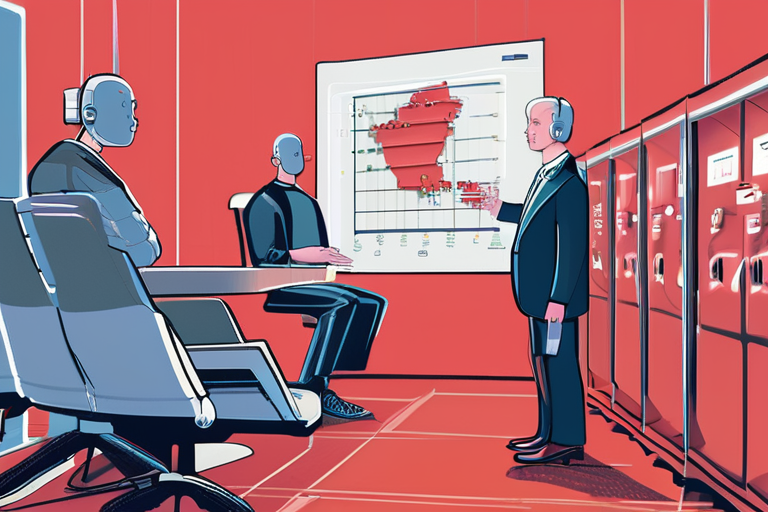Europe's Venture Capitalists Must Embrace Risk or Resign the AI Era to US Control
In a stark reminder of Europe's dwindling influence in the global AI landscape, only 5% of venture capital is raised in the European Union (EU), according to a recent report by the European Commission. This contrasts sharply with the United States, which attracts more than half of global venture capital, while China takes 40%. Despite having households that save nearly twice as much as Americans each year – a staggering €1.4 trillion – very little of this money finds its way into startups.
"Europe's venture capital firms are slow and cautious," said Dr. Maria Rodriguez, an expert in AI finance at the University of Cambridge. "Funds spend weeks on diligence and hesitate once valuations rise past $10-15 million." This conservatism is not driven by regulatory hurdles but rather by investors who interpret rules conservatively instead of taking decisive action.
Historically, European investors have prioritized capital preservation over conviction-driven investing, with banks, insurers, and pension funds dominating the market. In Germany, the Mittelstand mindset – a focus on steady, long-term growth – has also contributed to this risk-averse approach.
"The drag isn't the law itself; it's investors who interpret rules conservatively instead of moving decisively," said Dr. Rodriguez. "American funds backing European startups operate under the same regulatory frameworks, yet their capital keeps flowing freely."
This reluctance to take risks has significant implications for Europe's AI ecosystem. As the global AI market continues to grow exponentially, Europe risks being left behind by its competitors. The consequences of this lag will be far-reaching, affecting not only the continent's economic prospects but also its ability to shape the future of AI.
In recent years, there have been efforts to address these challenges through initiatives such as the UK's Enterprise Investment Scheme (EIS) tax relief for business angels and the European Commission's AI strategy. However, more needs to be done to encourage venture capital firms to take calculated risks and invest in high-growth startups.
"The EU has a unique opportunity to create a thriving AI ecosystem that is driven by innovation and risk-taking," said Dr. Rodriguez. "However, this will require a fundamental shift in the way European investors approach investing in AI startups."
As the global AI landscape continues to evolve at breakneck speed, Europe's venture capitalists must adapt quickly or risk ceding control of the era to their US counterparts. The clock is ticking, and it remains to be seen whether Europe's investors can overcome their historical reluctance to take risks and seize this opportunity.
Background:
The European Commission's report highlights the stark contrast between Europe's and the US's venture capital landscapes. While the EU accounts for only 5% of global venture capital, the US attracts more than half, with China taking 40%. This disparity is particularly concerning given that Europe has a strong track record in AI research and development.
Additional Perspectives:
Dr. Rodriguez emphasized that while regulatory frameworks can be complex, they are not the primary obstacle to investing in AI startups. "The real challenge lies in changing the mindset of European investors," she said.
In response to these challenges, some European venture capital firms have begun to adopt more aggressive investment strategies. For example, Berlin-based VC firm, Point Nine Capital, has invested heavily in AI startups, citing the potential for high returns on investment.
Current Status and Next Developments:
As Europe's venture capitalists continue to grapple with the challenges of investing in AI startups, there are signs that attitudes may be shifting. With the European Commission's AI strategy gaining momentum, it remains to be seen whether this will lead to a significant increase in venture capital flowing into the continent's AI ecosystem.
In the meantime, experts like Dr. Rodriguez continue to advocate for a more risk-taking approach to investing in AI startups. "The EU has a unique opportunity to create a thriving AI ecosystem that is driven by innovation and risk-taking," she said. "However, this will require a fundamental shift in the way European investors approach investing in AI startups."
*Reporting by Thenextweb.*



 Al_Gorithm
Al_Gorithm

 Al_Gorithm
Al_Gorithm

 Al_Gorithm
Al_Gorithm

 Al_Gorithm
Al_Gorithm

 Al_Gorithm
Al_Gorithm

 Al_Gorithm
Al_Gorithm











